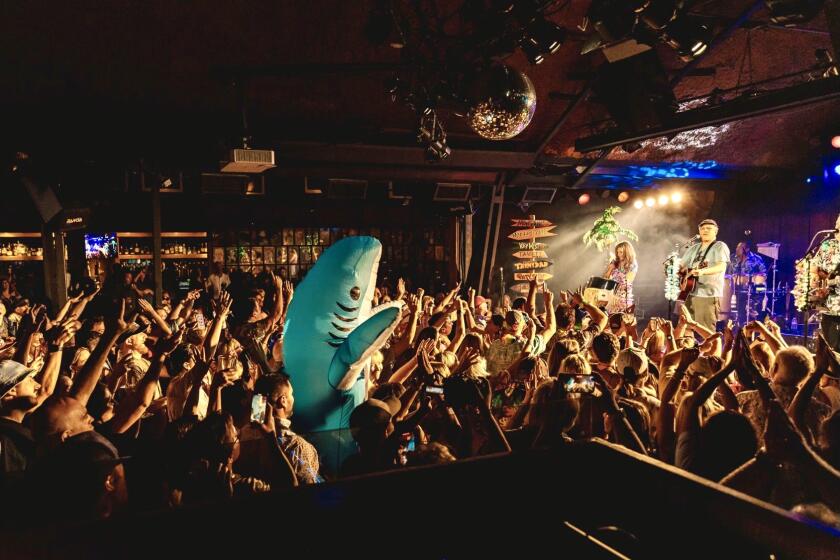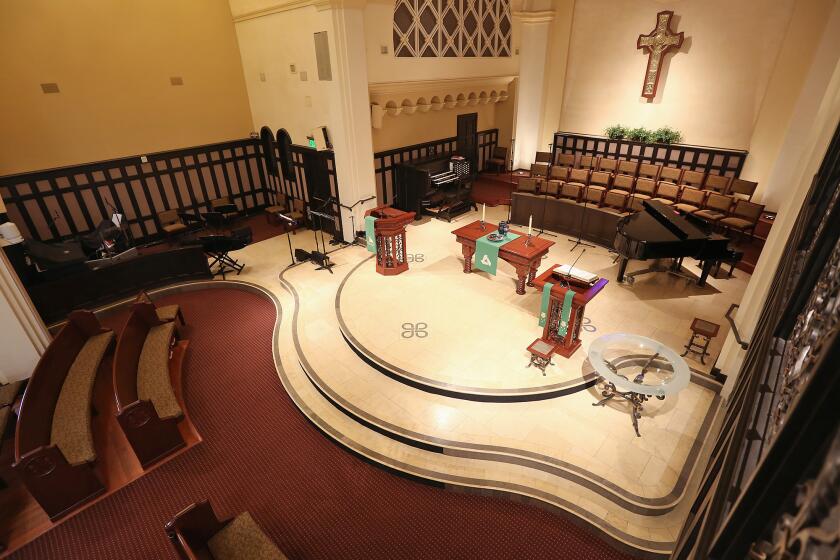Human relations committee needed
We returned home from a week in North Carolina late in the evening on
July 8. While we were unpacking, I remembered that this was Newport
Beach City Council night. It was near 10 o’clock when we picked up
the proceedings on television, and for almost three hours -- until 4
a.m., our getting-up time -- we watched a city peel back layer after
layer of bigotry and hatred until a deeply troubling body was
exposed.
Don’t disparage this assessment by telling me that most of the
speakers who supported Nichols on that night were from other towns.
Many of them were. But to use that fact as a shield to hide our
home-grown bigotry would be to deny the lesson from this long, angry
night that we have plenty of healing to do here at home. And because
that awareness has been sublimated to dealing with the public
behavior of an antediluvian council member, I’m not at all sure the
lesson has been learned.
What we heard after we tuned in were people with gloves off. They
were expressing feelings melted down by emotional heat to core
convictions, suddenly made legitimate by the almost offhand bigotry
expressed by Dick Nichols. Most of these emotional speakers -- both
pro and con Nichols -- were locals, while the out-of-towners offered
up statistical and constitutional arguments that were mostly
irrelevant.
The number of Latinos -- legal or illegal -- entering the country
or in residence here was not an issue before this City Council. Nor
was free speech an issue. No one has tried to inhibit Nichols’ right
to speak out.
He has articulated his particular brand of inbred bigotry in this
community for many years and sees no reason for changing this pattern
now that it has gotten him in trouble when dispensed from a public
platform.
Instead of stepping back to take a breath, he has added to his
laundry list of obtuseness in recent weeks by calling a local
political appointee “questionable” because he is gay, describing
Orange County’s hallowed Lincoln Club as “not a bona fide Republican
group,” and even suggesting that the out-of-town speakers opposing
him before the City Council were conspiring to return California to
Mexico.
Nichols’ views are not going to change. That becomes a cause for
removal only if racism clearly influences his votes on public policy.
Thus, the core question is whether or not Nichols, in light of recent
events, can properly represent the people who elected him to the City
Council.
The resolution of the council demanding that Nichols resign if he
can’t abide by his oath of office offers no problem to Nichols since
he clearly believes that is exactly what he has been doing. And given
the tone of the public comments, both at council meetings and on the
Pilot’s Forum page, a successful recall would be no slam dunk.
So while the recall issue is being held in abeyance, maybe it’s
time to change our focus. As long as our attention is fixed on
Nichols, we can avoid addressing an issue that seems to me not only
more important but also more amenable to our efforts.
When I arrived in Newport Beach more than 40 years ago, we had a
congressman who told us a Chinese army was training in Mexico to
invade California, the John Birch Society was finding nests of
communists on our school boards, we sent a man to the California
Senate -- and later to Congress -- who believed that Dwight
Eisenhower was a communist agent, and we refused to let a group of
touring Yugoslav mayors attend a Newport Beach City Council meeting
-- among many other aberrations.
These are the philosophical roots that spawned Dick Nichols and --
from the sound of his supporters -- more than a few other local
citizens. All the layers of sophistication that have come about since
-- in education, in the arts, in the business world -- have papered
over these excesses. But Dick Nichols has exposed them anew, and if
we simply paper over them once again, we’ve learned nothing from the
Nichols episode.
I called City Manager Homer Bludau to ask if Newport Beach had a
Human Relations Commission. We don’t.
I asked if recent events don’t suggest that it might be a good
idea. He said he didn’t think we needed one and cited the city
clerk’s scorecard showing that local citizens who spoke out were 2 to
1 against Nichols. I don’t find a projection suggesting that
one-third of our citizens embrace the Nichols agenda very comforting.
If such a commission is ever proposed, I have a strong candidate
for chairman. He is an imposing African American resident of Newport
Coast who went directly to the heart of this problem with quiet
dignity when he told the City Council: “This is not a healthy place
for me. I don’t feel comfortable living in Newport Beach, but I’m not
leaving.”
I think it would be instructive for council members to know why he
doesn’t find Newport Beach a healthy place to live. I tried to help,
but the city clerk tells me he didn’t turn in a speaker’s card, and I
can’t find the name our reporter got from him in the local phone
book. I would strongly welcome a phone call from him (I’m in the
book) so I can pass this information along to council members,
whether they want to hear it or not.
Meanwhile, there are some heartening signs that the locals are
finding all sorts of creative ways to deal with the Nichols Syndrome.
Some of the letters to the Pilot have been of near literary quality,
and almost all have been thoughtful. And the best medication of all
-- humor -- showed up at a kind of grass-in at Corona del Mar beach
last weekend where an ethnic mix of people got along just fine, and
the centerpiece was a large cardboard sign that said: “Warning:
Mexicans.”
A fitting epilogue to all this appeared in a Los Angeles Times
story about a survey just done in Germany seeking to identify the
social roadblocks in the way of tolerance.
“Many Germans still believe in a cultural sense that Germany is a
country only for Germans,” the survey read. “As a result, we are
faced more urgently than ever with the unsolved cardinal issue of a
new culture of recognition for all who live in this society.”
So are we.
* JOSEPH N. BELL is a resident of Santa Ana Heights. His column
appears Thursdays.
All the latest on Orange County from Orange County.
Get our free TimesOC newsletter.
You may occasionally receive promotional content from the Daily Pilot.



